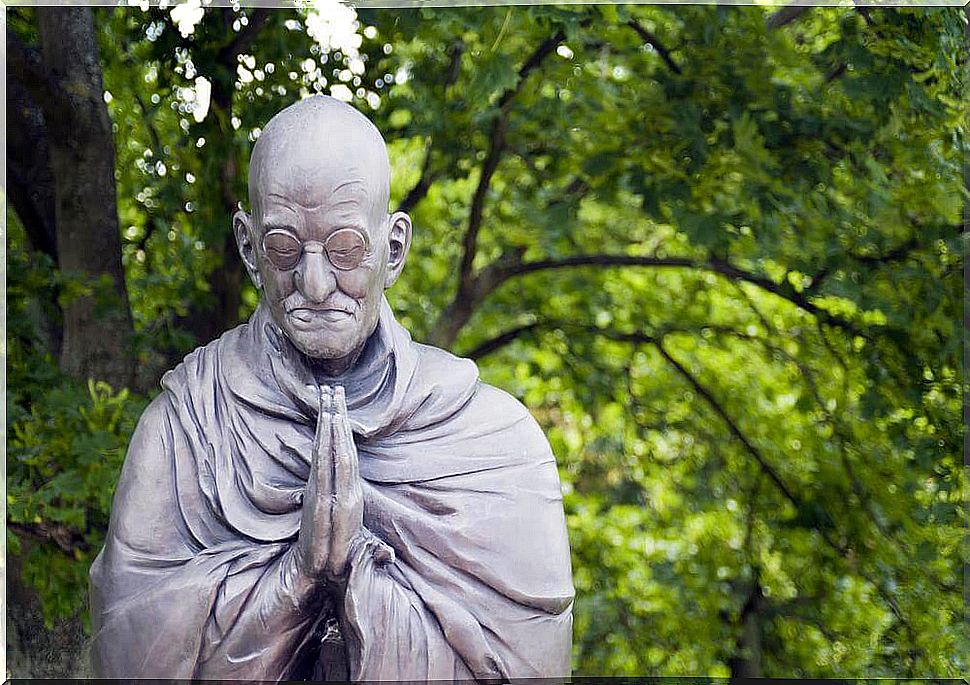How To Succeed In An Argument, According To Gandhi

Mahatma Gandhi’s life is full of stories and anecdotes about confrontations that end up providing great doses of wisdom. In fact, this man achieved fame and went down in history as the first to raise a “war” without violence.
It is said, for example, that he once sat down to eat next to a professor at the University of London. The teacher asked him to leave because “birds and pigs cannot eat together.” Gandhi got up and said: “Don’t worry professor , I’m going to fly away. “
Gandhi almost always got his way in discussions. But he did it with such intelligence and such grace, that he finally brought something to his opponent. His thing , rather than winning the argument , was to reveal a learning taken from the situation. So, if you think so, we are going to detail their suggestions to succeed in a discussion.
Don’t be selfish and argue solidly
For Gandhi, any perspective on a problem must also encompass the condition of the opponent. Being clear about this idea, he destroyed the monopoly of the English textile industry and then went to each of the factories to apologize for the dismissals he had caused.

He was also characterized by thoroughly studying each topic. He was not content with having a superficial view of the world. He read, he delved, he consulted. All of this allowed him to form an informed and solid opinion on any matter. That is undoubtedly a key to face any debate.
Train physical strength and patience
I thought that the strength of the body contributes decisively to the strength of the mind. Gandhi was characterized by maintaining a good physical shape, which allowed him to endure hard times with an amazing capacity for recovery. Training the body provides temperance, strengthening of the will and self-control.
Patience, on the other hand, is the training of the mind. Gandhi said that a wall must be built brick by brick. And that each piece has its own moment to settle there. Patience is a trait of the strongest minds. Not giving in on the first impulse is key to success, especially in a confrontation.
Empathize with the other, get involved with their emotions
Gandhi trumpeted ideas that were universal in scope. Its principles were not the product of a localist or whimsical vision. Quite the opposite. In his ideas and his struggle, all humanity was also present. His doctrine focused first on his own people, but was inspired by universal values.

This leader gave an important place to emotions. His speech was not purely ideological. He tried to understand the position of his opponents and took into account what they might feel. That is why hundreds of thousands of people in the world followed him and admired him, even if they did not share his cause. Winning a confrontation does not necessarily imply canceling the other.
Speak plain language and be transparent
Simplicity in their speech is something that characterizes great leaders. They do not speak to be admired, they speak to be understood. And the best way to promote understanding is to use simple language that anyone can understand.
This would be populism if behind it there were hidden interests. But if simple words don’t hide hidden truths, they reach people’s hearts. An authentic and genuine speech has a great power of conviction. And it also carries respect. A verbal discussion is won like this: with deep arguments, said simply and without lies.
Grow in self-reliance and persevere
Gandhi insisted on getting his own salt. In making your own clothing items and other everyday objects. He turned self-reliance into a way to build freedom. He knew that the bonds of dependency are not born in the big facts, but in the small details. And it attacked the evil at its roots.
It took this great leader 55 years to complete the independence of India, which was his great dream. He did it his way: without resorting to violence. He went through thousands of difficulties before he did it. Difficulties of all kinds, even conflicts with himself. Deep down he knew that perseverance is a key that ends up opening any door and that the ability to persist allows one to advance towards success.

All of Gandhi’s teachings leave us with a precious catalog of human values. His triumph was a triumph of the spirit and that is why it marked a before and after. The greatest of all his precepts was to confront, without the aim of destroying the other. In this way there is never defeat, since it is a sure way for everyone to end up winning, even if it is not everything they would like.
Main image courtesy of Whooli Chen









